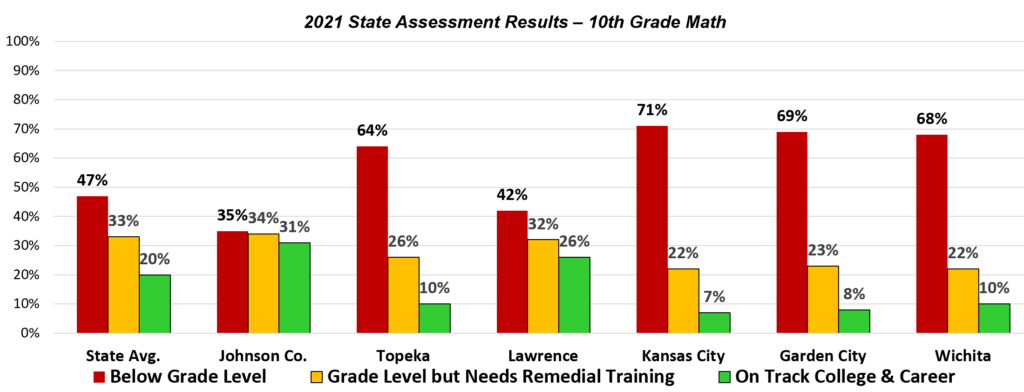Kansas Governor Laura Kelly ranks 27th out of all 50 state governors according to a new report from the American Legislative Exchange Council.
While Kelly garnered relatively good marks on policy matters — ranking 17th for executive policy — she is #31 on economic performance and #28 on fiscal policy.
Meanwhile, in neighboring states, fellow Democrat Governor Jared Polis of Colorado ranked fourth overall just behind Ron DeSantis of Florida. Nebraska Governor Pete Rickets is #11, Missouri Governor Mike Parsons is #12, and Oklahoma Governor Kevin Stitt is #16th.
In a press conference via Zoom, ALEC Chief Economist Jonathan Williams said this is not a partisan report — noting a Democrat governor was ranked in fourth.
“Some impressive stories there, some bipartisan stories,” he said. “Our ALEC ideas are not partisan ideas.”
Donna Arduin, an economist with Arduin, Laffer & Moore Econometrics and one of the authors of the report, said the report should be used as a policy tool.
She noted the three performance indicators — executive policy, economic performance, and fiscal policy were picked for a reason.
“We chose them because they are measurable and because they are important,” she said in the press conference. “If [governors] understand how [their] policies impact the state they can use this as a tool.
“Educational attainment — primarily 4th-grade reading scores. These things matter, income taxes matter.”
Among the issues in Kelly’s performance cited in the report was a sharp increase in spending as a percentage of Gross State Product.
The state budget in 2010 was roughly 11% of GSP and began to drop rapidly over the next few years to a low of just over 9% in 2018. It had begun to rise slightly just before Kelly’s inauguration but spiked back to nearly the 2010 level within a year of Kelly taking office.
Kelly’s low marks on economic performance were in part thanks to low educational achievement — Kelly ranked 39th on education quality — and ranking as the 11th most moved-from state in the nation.
Kelly also took poor marks for the corporate income tax rate — ranked 34th, the state’s personal income tax rate (32nd), per-capita spending (24th), and for the extension of federal unemployment benefits (36th).
Kansas also has one of the highest state and local sales tax rates in the nation as well as some of the highest property tax rates in the U.S.
Kelly did rank well on executive policy, ranking 12th on both education freedom and welfare dependency, but only 39th on the level of union control in the state — despite Kansas having been a right-to-work state since the 1950s — public employee unions in the state remain a significant power.
The education freedom ranking is based largely on a technicality, however; Kansas allows charter schools, but only their competition – public school districts – can authorize a charter school.
All of those policies were in place when Kelly took office of course, and it is worth noting that Kansas ranks 34th in the Center for Educational Reform’s “Parent Power Index,” and Kansas received a “D” grade in school choice from CER, giving parents of low- and middle-income students an opportunity for a tax credit scholarship that can be used to offset tuition at a private school, rather than education savings accounts that allow parents to send their children to the school of their choice.
The state assessment shows Kansas has more high school students below grade level than are on track for college and career. In math, 47% are below grade level and only 20% are on track for college and career.

Similar results are shown in English language arts.
About ALEC
The American Legislative Exchange Council is America’s largest nonpartisan, voluntary membership organization of state legislators dedicated to the principles of limited government, free markets, and federalism. Comprised of nearly one-quarter of the country’s state legislators and stakeholders from across the policy spectrum, ALEC members represent more than 60 million Americans and provide jobs to more than 30 million people in the United States.
The Laffer-ALEC report was authored by Dr. Arthur Laffer, Williams, and Arduin.



